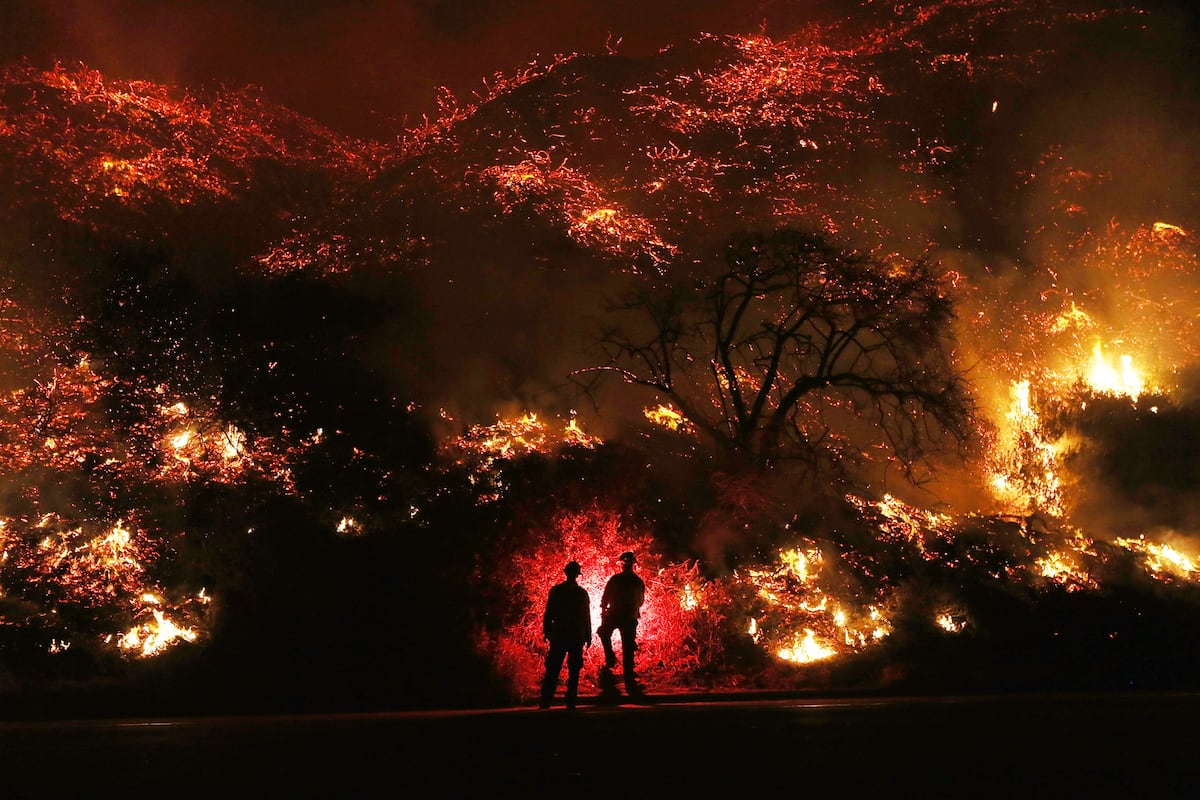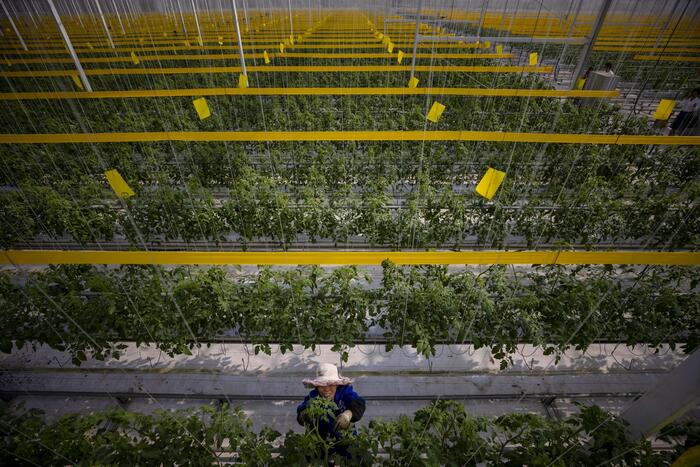Fire in the Amazon rainforest near Humaita, Amazonas state, Brazil, on August 17, 2019.UESLEI MARCELINO
The Polish jurist Raphael Lemkin had to coin, after the end of World War II and when the world discovered the horrors of the Holocaust, a new name for what humanity had made itself: the crime of genocide, that is, the attempt to exterminate an ethnic group just for the sake of existing.
Along with war crimes and crimes against humanity, it became part of the crimes prosecuted by the International Criminal Court (ICC), which is governed by the Rome Statute, ratified so far by 123 countries.
Now, an international group of 12 jurists is working on the drafting of a new crime, with the aim of adding it to this statute.
It has also been necessary to coin a new word:
ecocide
.
This term, first used by the Swedish Social Democratic politician Olof Palme in the 1970s, is intended to criminalize the destruction of ecosystems and an irreversible attack on the environment.
The definition of
ecocide
is an initiative of civil society, promoted by the Stop Ecocide campaign, also present in Spain, which aims to have concrete effects on international legislation, but also on that of the countries themselves.
The panel of experts began work in January and the idea is to present a draft in June, which will be publicly discussed before establishing a final text, which will be presented to the signatory states of the Rome Statute.
One of the jurists who are part of the panel as vice president is the British Philippe Sands, a law professor, an expert lawyer in international justice who has taken cases before the ICC and also a writer, author of
Calle Este Oeste
(Anagrama), a book that recounts the birth of the crimes of crimes against humanity and genocide and their application against the Nazi leadership.
In an interview from London, Sands does not want to give concrete examples of what an
ecocide
could be
, because the discussion is still open, but he does anticipate some of the problems that are on the table.
The lawyer who gave up a promising career to defend the planet
Against impunity for 'ecocides'
"One of the debates we have in the group is to what extent the new crime of
ecocide
should try to protect the environment as an end in itself," says Sands.
“In other words, not simply as a means to protect human well-being.
My point of view is that I want to avoid an anthropocentric approach and we should ensure that the environment is protected as an end in itself, not simply to make the world a better place for us.
And this is an intense debate ”.
Nowadays, the ICC can examine cases of destruction of the environment due to the damage it causes to human beings;
in fact, it is studying a complaint filed against the president of Brazil, the far-right Jair Bolsonaro, for the fires and deforestation of the Amazon.
The voluntary destruction of ecosystems is also a war crime, but it can only be investigated in the context of an armed confrontation.
Furthermore, the ecological sensitivity of the ICC prosecutor's office is increasingly important.
In a 2016 document, the prosecution maintained that it would pay special attention "to crimes that are committed through the destruction of the environment, the illegal exploitation of natural resources or the illegal appropriation of land."
Sands maintains that the person who has occupied the role that Lemkin had in 1945 is the Scottish lawyer Polly Higgins, who published an essay in 2011,
Eradicating ecocide
, in which she proposed an international legislative change that would be transferred to countries, since many States they do not consider the destruction of ecosystems a concrete crime.
Higgins passed away from cancer in 2019 at age 50 and was unable to see his idea come to fruition.
“At this time, beyond possible litigation for damages by individuals,” Higgins wrote in his book, “there is no concrete legislative mechanism when, for example, a massive oil spill occurs.
We do not have the laws that allow us to prevent something like this from happening again ”.
Olof Palme coined the term
ecocide
in 1972, when addressing the use that the United States made during the Vietnam War of Agent Orange, a herbicide that the army of the North American country threw on the jungles where the Communists were hiding.
But it was Highins who worked to make it part of the legal body recognized by the United Nations.
Co-chaired by Sands and Senegalese jurist Dior Fall Sow, the panel of experts is also composed of Kate Mackintosh of the United States, Richard J. Rogers of Britain, Tuiloma Neroni Slade (of Samoa and former ICC judge), Syeda Rizwana of Bangladesh Hasan, the French Valérie Cabanes or the Chilean-Spanish jurist Rodrigo Lledó (president of the Baltasar Garzón Foundation).
It is not the first time that the Rome Statute has been amended: in 2010 a new crime was introduced, the crime of aggression, defined as the use of armed force by a State against the sovereignty, territorial integrity or political independence of an other state.
It is only valid for countries that, like Spain, have recognized the change.
The ICC was an initiative of the UN and entered into force on July 1, 2002. In fact, when the statute was being prepared in the 1990s, the concept of crimes against the environment appeared in the discussions, but was finally discarded.
A difficult road
The jurists are hopeful, but they are clear that the way for this crime to reach the ICC will not be easy.
First, because a new actor enters among the possible persecuted: it is no longer just individuals, but many crimes that could fall within the spectrum of
ecocide
are committed by large multinational corporations.
Second, because of the enormous economic interests at stake.
Third, because of the problem of determining the willfulness of committing this crime: proving a deliberate destruction of an ecosystem is not easy.
Rodrigo Lledó explains this last debate as follows: “Just as genocide defined the will to destroy an entire ethnic group,
ecocide
will try to pursue irreversible and deliberate damage to the environment.
But what about environmental disasters that are caused by extreme negligence?
A dam built with poor quality materials can cause an
ecocide
.
Or a mining company that builds a pond out of toxic materials without taking proper safety measures can also cause a disaster.
Are cases like these going to be part of the crime of
ecocide
?
It is a debate that we are having and that we also want society to have once we present a draft ”.
Sands believes that lessons can be drawn from what happened after World War II regarding the definition of genocide.
In order for it to be accepted by the countries that won the conflict, including Stalin's USSR, a very narrow definition was established: it is only applicable to religious or ethnic groups, not to political or cultural persecutions, and it is necessary to prove in court the will to destroy, which is not easy at all.
The crimes of genocide recognized by international justice can be counted on the fingers of one hand.
“We are preparing a text that is extremely practical.
You have to find a middle ground between something that is perfect, flawless and theoretically magnificent, but has zero prospect of success, or compromises and comes up with a narrower definition, but has a better chance of being adopted by countries.
With the definition of genocide there was a similar debate ”.
What began as a somewhat utopian project, with the growing threat of climate change has become a real perspective, which already has the public support of French President Emmanuel Macron, who in July was willing to “guarantee that this term is enshrined in international law so that the leaders are accountable to the International Criminal Court ”.
Pope Francis has also been in favor of their inclusion.
"I think something is happening," says Sands about the initiative's chances of success.
You can follow CLIMA Y MEDIO AMBIENTE on
and
, or sign up here to receive
our weekly newsletter

/cloudfront-eu-central-1.images.arcpublishing.com/prisa/VPNLBD5BVEMJO3KHBMFWHM7JJY.jpg)

/cloudfront-eu-central-1.images.arcpublishing.com/prisa/OD5MJV26FUPN7IUAUBUZCI5NQE.jpg)



/cloudfront-eu-central-1.images.arcpublishing.com/prisa/N2FIVZQWLLD6P5LU4ANSJRRVXU.jpg)
/cloudfront-eu-central-1.images.arcpublishing.com/prisa/KAZHWIUCH5FM5JORPAPL5JTWWE.jpg)
